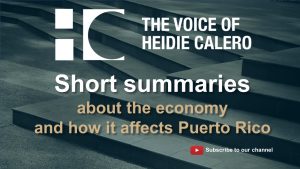
Q4 2012: Banking Sector Plays Key Role in Growth
Government, both federal and local, recognized the importance of the financial system. Trillions of federal funds have been directed to financial bailout programs. Since the onset of the Great Recession in the US, we have increasingly heard that the financial system was one of the main causes of the crisis. Indeed, the financial sector plays a determinant role in economic growth. This also applies in Puerto Rico, which currently has 11 commercial banks. How do these banks impact the island economy? What has been their response to the ongoing 6-year recession? What are the main drivers of bank behavior? In response, what does the economy need from banks? After all, their lending activity impacts both consumer as well as business sectors. This Compass discusses some of these questions.








